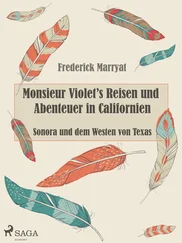Фредерик Марриет - Travels and Adventures of Monsieur Violet
Здесь есть возможность читать онлайн «Фредерик Марриет - Travels and Adventures of Monsieur Violet» — ознакомительный отрывок электронной книги совершенно бесплатно, а после прочтения отрывка купить полную версию. В некоторых случаях можно слушать аудио, скачать через торрент в формате fb2 и присутствует краткое содержание. Жанр: Путешествия и география, Юмористические книги, foreign_antique, foreign_humor, на английском языке. Описание произведения, (предисловие) а так же отзывы посетителей доступны на портале библиотеки ЛибКат.
- Название:Travels and Adventures of Monsieur Violet
- Автор:
- Жанр:
- Год:неизвестен
- ISBN:нет данных
- Рейтинг книги:3 / 5. Голосов: 1
-
Избранное:Добавить в избранное
- Отзывы:
-
Ваша оценка:
- 60
- 1
- 2
- 3
- 4
- 5
Travels and Adventures of Monsieur Violet: краткое содержание, описание и аннотация
Предлагаем к чтению аннотацию, описание, краткое содержание или предисловие (зависит от того, что написал сам автор книги «Travels and Adventures of Monsieur Violet»). Если вы не нашли необходимую информацию о книге — напишите в комментариях, мы постараемся отыскать её.
Travels and Adventures of Monsieur Violet — читать онлайн ознакомительный отрывок
Ниже представлен текст книги, разбитый по страницам. Система сохранения места последней прочитанной страницы, позволяет с удобством читать онлайн бесплатно книгу «Travels and Adventures of Monsieur Violet», без необходимости каждый раз заново искать на чём Вы остановились. Поставьте закладку, и сможете в любой момент перейти на страницу, на которой закончили чтение.
Интервал:
Закладка:
The two ladders were fixed against one of the towers, and an Indian ascended upon each; at first they cast an inquisitive glance through the holes upon both sides of the door, but we concealed ourselves. Then all the Umbiquas formed in a circle round the ladders, with their bows and spears, watching the loop-holes. At the chief’s command, the first blows were struck, and the Indians on the ladders began to batter both doors with their tomahawks. While in the act of striking for the third time, the Umbiqua on the eastern door staggered and fell down the ladder; his breast had been pierced by an arrow. At the same moment a loud scream from the other tower showed that here also we had had the same success.
The Umbiquas retired precipitately with their dead, uttering a yell of disappointment and rage, to which three of our boys, being ordered so to do, responded with a shrill war-whoop of defiance. This made the Umbiquas quite frantic, but they were now more prudent. The arrows that had killed their comrades were children-arrows; still there could be no doubt but that they had been shot by warriors. They retired behind a projecting rock on the bank of the river, only thirty yards in our front, but quite protected from our missiles. There they formed a council of war, and waited for their men and canoes, which they expected to have arrived long before. At that moment, the light fog which had been hovering over the river was dispersed, and the other shore became visible, and showed us a sight which arrested our attention. There, too, the drama of destruction was acting, though on a smaller scale.
Just opposite to us was a canoe; the same in which our two Indians had gone upon their expedition the day before. The two Umbiquas keeping the stolen horses were a few yards from they had apparently discovered it a few minutes before, and were uncertain what course to pursue; they heard both the war-whoop and the yell of their own people, and were not a little puzzled; but as soon as the fog was entirely gone, they perceived their party, where they had sheltered themselves, and, probably in obedience to some signals from it, they prepared to cross the river. At the very moment they were untying the canoe, there was a flash and two sharp reports; the Indians fell down—they were dead. Our two scouts, who were concealed behind some bushes, then appeared, and began coolly to take the scalps, regardless of a shower of arrows from the yelling and disappointed Umbiquas. Nor was this all: in their rage and anxiety, our enemies had exposed themselves beyond the protection of the rock; they presented a fair mark, and just as the chief was looking behind him to see if there was any movement to fear from the boat-house, four more of his men fell under our fire.
The horrible yells which followed, I can never describe, although the events of this, my first fight, are yet fresh in my mind. The Umbiquas took their dead, and turned to the east, in the direction of the mountains, which they believed would be their only means of escaping destruction. They were now reduced to only ten men, and their appearance was melancholy and dejected. They felt that they were doomed never more to return to their own home.
We gathered from our scouts opposite, that the six warriors of the post had returned from the settlement, and lay somewhere in ambush; this decided us. Descending by the ladders which the Indians had left behind them, we entered the prairie path, so as to bar their retreat in every direction.
Let me wind up this tale of slaughter. The Umbiquas fell headlong on the ambush, by which four more of them were killed; the remainder dispersed in the prairie, where they tried in vain to obtain a momentary refuge in the chasms. Before mid-day they were all destroyed, except one, who escaped by crossing the river. However, he never saw his home again; for, a long time afterwards, the Umbiquas declared that not one ever returned from that fatal horse-stealing expedition.
Thus ended my first fight; and yet I had not myself drawn a single trigger. Many a time I took a certain aim; but my heart beat quick, and I felt queer at the idea of taking the life of a man. This did not prevent me from being highly complimented; henceforward Owato Wanisha was a warrior.
The next day I left the boat-house with my own party, I mean the seven of us who had come from Monterey. Being all well mounted, we shortly reached the settlement, from which I had been absent more than three months.
Events had turned out better than I had anticipated. My father seemed to recover rapidly from the shock he had received. Our tribe, in a fierce inroad upon the southern country of the Crows, had inflicted upon them a severe punishment. Our men returned with a hundred and fifty scalps, four hundred horses, and all the stock of blankets and tobacco which the Crows had a short time before obtained from the Yankees in exchange for their furs. For a long time, the Crows were dispirited and nearly broken down, and this year they scarcely dared to resort to their own hunting-grounds. The following is a narrative of the death of the Prince Seravalle, as I heard it from individuals who were present.
The year after we had arrived from Europe, the Prince had an opportunity of sending letters to St. Louis, Missouri, by a company of traders homeward bound. More than three years had elapsed without any answer; but a few days after my departure for Monterey, the Prince having heard from a party of Shoshones, on their return from Fort Hall, that a large caravan was expected there, he resolved to proceed to the fort himself, for the double purpose of purchasing several articles of hardware, which we were in need of, and also of forwarding other instructions to St. Louis.
Upon his arrival at the fort, he was agreeably surprised at finding, not only letters for him, together with various bales of goods, but also a French savant, bound to California, whither he had been sent by some scientific society. He was recommended to us by the Bishop, and the President of the college at St. Louis, and had brought with him as guides five French trappers, who had passed many years of their lives rambling from the Rocky Mountains to the southern shores of Lower California.
The Prince left his Shoshones at the fort, to bring on the goods at a fitting occasion, and, in company with his new guests retraced his steps towards our settlement. On the second day of their journey they met with a strong war-party of the Crows, but as the Shoshones were then at peace with all their neighbours, no fear had been entertained. The faithless Crows, however, unaware, as well as the Prince, of the close vicinity of a Shoshone hunting-party, resolved not to let escape an opportunity of obtaining a rich booty without much danger. They allowed the white men to pursue their way, but followed them at a distance, and in the evening surprised them in their encampment so suddenly that they had pot even time to seize their arms.
The prisoners, with their horses and luggage, were conducted to the spot where their captors had halted, and a council was formed immediately. The Prince, addressing the chief, reproached him bitterly with his treachery; little did he know of the Crows, who are certainly the greatest rascals among the mountains. The traders and all the Indian tribes represent them as “thieves never known to keep a promise or to do a honourable act.”
None but a stranger will ever trust them. They are as cowardly as cruel. Murder and robbery are the whole occupation of their existence, and woe to the traders or trappers whom they may meet with during their excursions, if they are not at least one-tenth of their own number. A proof of their cowardice is that once Roche, myself, and a young Parisian named Gabriel, having by chance fallen upon a camp of thirteen Crows and three Arrapahoes, they left us their tents, furs, and dried meats; the Arrapahoes alone showing some fight, in which one of them was killed: but to return to our subject. The chief heard the Prince Seravalle with a contemptuous air, clearly showing that he knew who the Prince was, and that he entertained no goodwill towards him. His duplicity, however, and greediness, getting the better of his hatred, he asked the prisoners what they would give to obtain their freedom. Upon their answer that they would give two rifles, two horses, with one hundred dollars, he said that all which the prisoners possessed when taken, being already his own, he expected much more than that. He demanded that one of the Canadians should go to Fort Hall, with five Crows, with an order from the Prince to the amount of sixty blankets, twenty rifles, and ten kegs of powder. In the meantime the prisoners were to be carried into the country of the Crows, where the goods were to follow them as soon as obtained; upon the reception of which, the white men should be set at liberty. Understanding now the intention of their enemies, and being certain that, once in the strong-holds of the Crows, they would never be allowed to return, the Prince rejected the offer; wishing, however, to gain time, he made several others, which, of course, were not agreed upon. When the chief saw that he was not likely to obtain anything more than that which he had already become master of, he threw away his mask of hypocrisy, and, resuming at once his real character, began to abuse his victims.
Читать дальшеИнтервал:
Закладка:
Похожие книги на «Travels and Adventures of Monsieur Violet»
Представляем Вашему вниманию похожие книги на «Travels and Adventures of Monsieur Violet» списком для выбора. Мы отобрали схожую по названию и смыслу литературу в надежде предоставить читателям больше вариантов отыскать новые, интересные, ещё непрочитанные произведения.
Обсуждение, отзывы о книге «Travels and Adventures of Monsieur Violet» и просто собственные мнения читателей. Оставьте ваши комментарии, напишите, что Вы думаете о произведении, его смысле или главных героях. Укажите что конкретно понравилось, а что нет, и почему Вы так считаете.

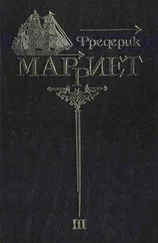
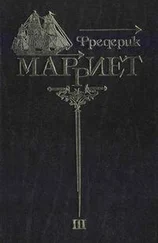
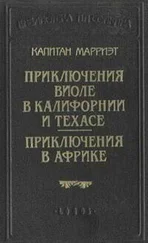
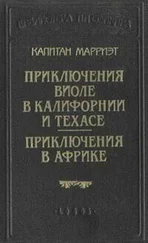
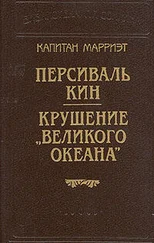
![Фредерик Марриет - Приключения в Америке [litres]](/books/432340/frederik-marriet-priklyucheniya-v-amerike-litres-thumb.webp)
